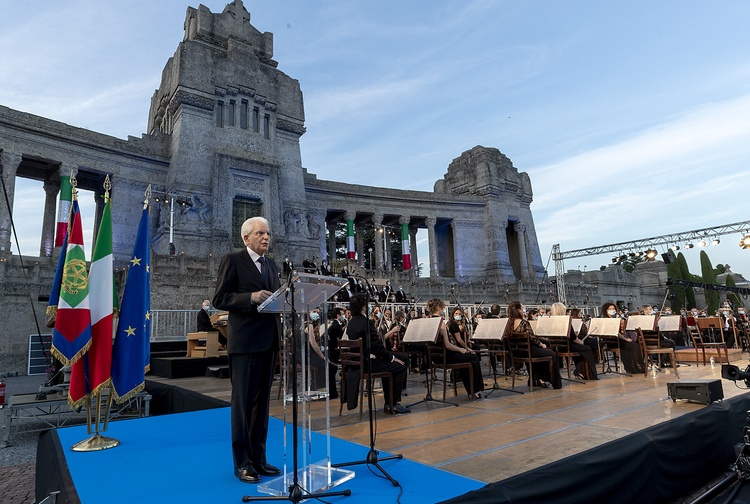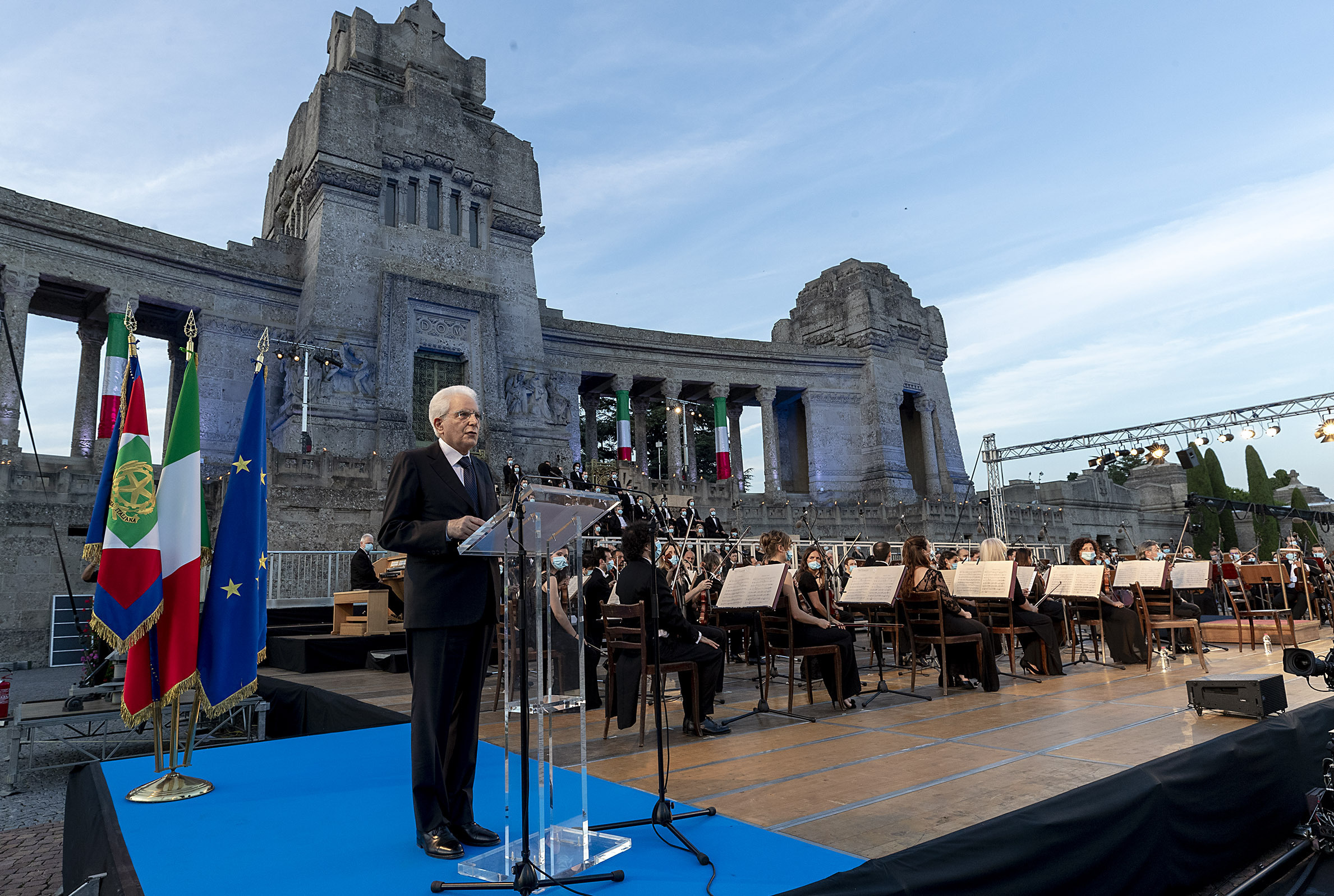President Sergio Mattarella was the guest of honour at the service.
“Here in Bergamo tonight, there is the Italy that has suffered, that has been wounded, that has wept,” Mattarella told a solemn gathering on Sunday evening.
Guests at the outdoor concert included 243 mayors, health workers and people who have lost loved ones to the coronavirus, including some of the relatives who have filed a legal complaint in Bergamo over the official handling of the health emergency.
RAI state television broadcast the concert live.
Aside from the soloists and conductor, masks were omnipresent including for the chorus, and the wind instruments were arranged behind Plexiglas.
The orchestra performed the unfinished Requiem Mass of Bergamo native Gaetano Donizetti, one of Italy’s most prominent 19th- century composers.
Bergamo recorded its first positive case on Februry 23 and since then, more than 6000 people have died from coronavirus in the provice.
Images in mid-March of an army convoy hauling caskets away because Bergamo’s cemetery and crematoriums were full exposed the horrific toll of the virus in Italy’s north.
Many of the Bergamo dead never had a funeral celebrated in their honour, depriving their families of the chance to say goodbye.
Mattarella said he hoped the Requiem event would help them remember their loved ones, even as Italy takes stock about what went wrong in Bergamo and beyond.
“Remember means reflecting with rigorous precision what didn’t work, the shortcomings of the system, errors to avoid repeating,” Mattarella said.
“It means at the same time recalling the value of the positive that was shown,” he said, citing the “extraordinary humanity” of doctors, nurses, civil protection crews and volunteers.
One of the invited guests at the concert was Luca Fusco, a Bergamo native who early on in the pandemic started a Facebook group to collect testimonies of Italians whose loved ones had died.
The group, “Noi Denunciaremo” (We will denounce) now has nearly 60,000 members and has mounted a legal battle to seek justice for the dead and ascertain what if any systemic errors or political decisions contributed to the staggering death toll.
Some members of the group protested outside the cemetery on Sunday behind a banner reading “Truth and Justice”.
Critics faulted organisers for creating a mere political spectacle without the true victims of the crisis.
Fusco, whose father died in the pandemic, said he hoped Mattarella’s presence would allow mourning families “to nourish the hope that not the entire political elite is willingly trying to hide”.












